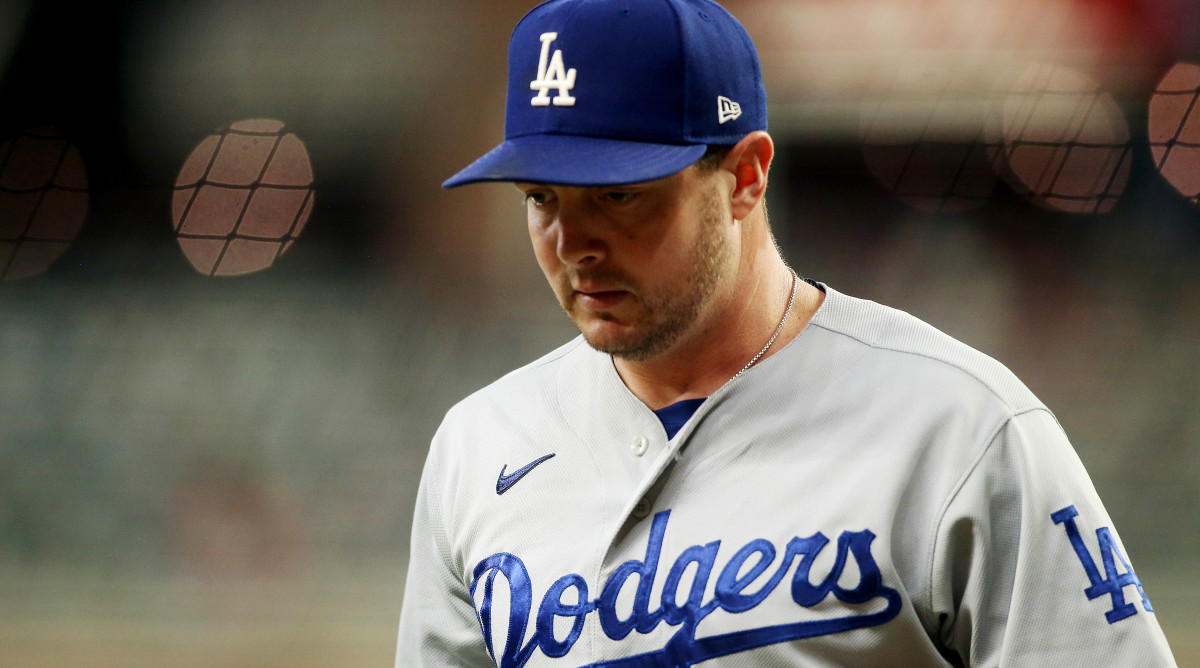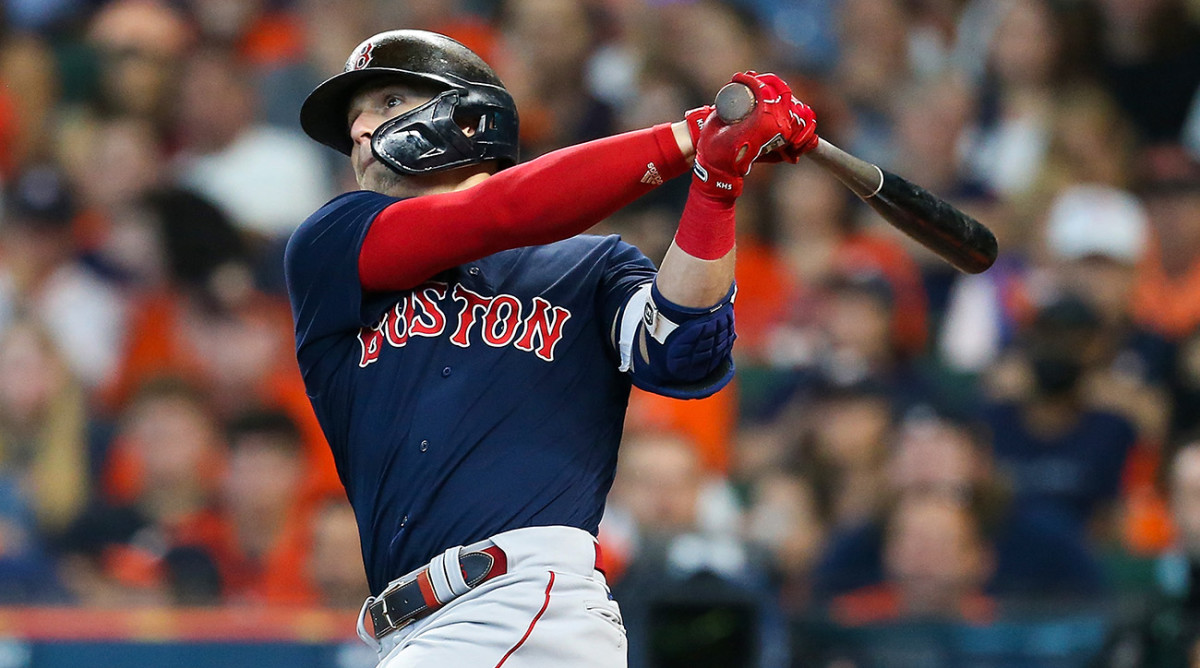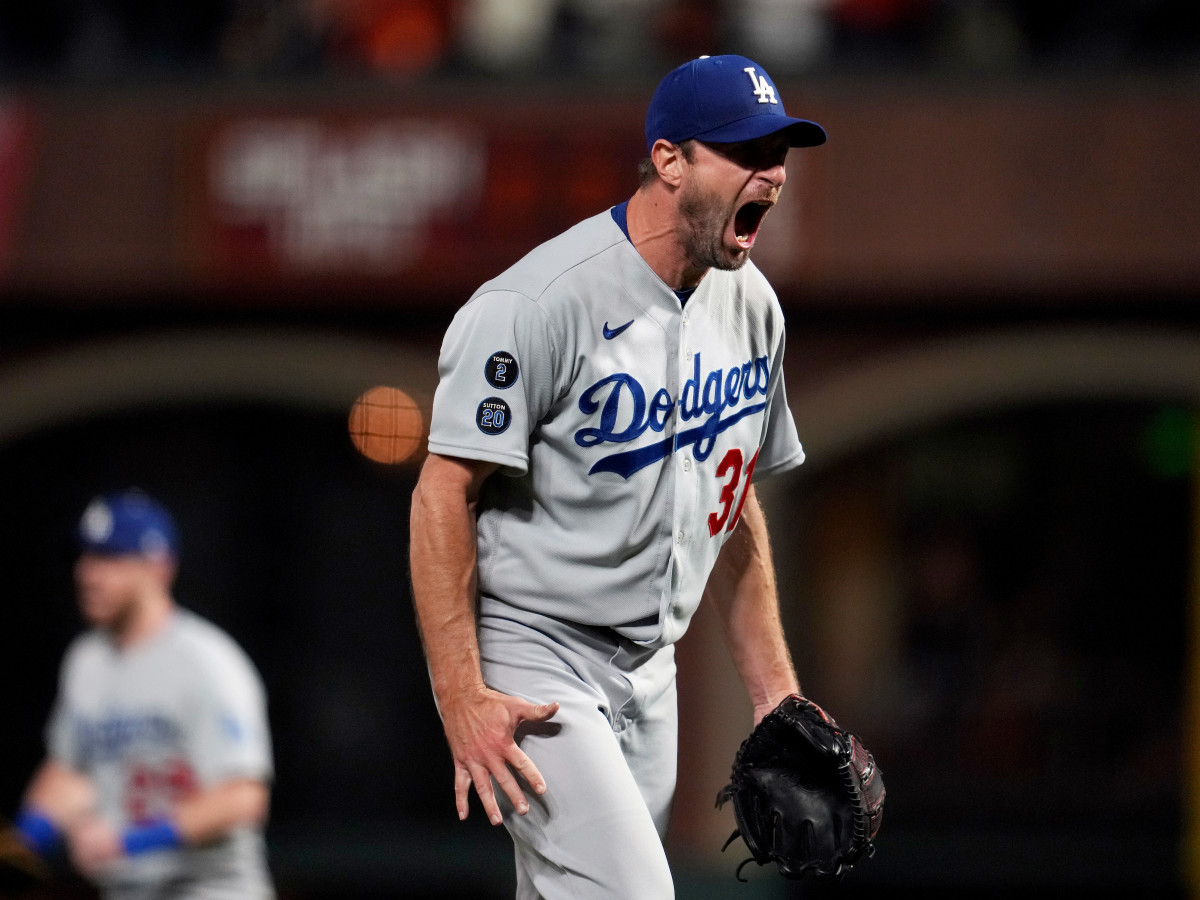Do the Dodgers Have a Pitching Problem?

Last night’s NLCS Game 1 was made for those of you who read only the first chapter and last chapter of books. Only twice last night did Atlanta have a baserunner in scoring position, in the first inning and the ninth inning. Both times, he stole second base to get there. Both times, he scored to give the Braves their only two leads of the game in their 3–2 walk-off win over the defending champion Dodgers at Truist Park.
Eddie Rosario, the Atlanta leadoff man, singled off Corey Knebel, the right-handed reliever who worked as the opener for the Dodgers in consecutive games. Rosario swiped second, advanced to third on a groundout and scored on a wild pitch.

In the ninth, it was lockdown Los Angeles reliever Blake Treinen on the mound when Ozzie Albies singled with one out. Then, despite Treinen’s best efforts to stop the steal, Albies successfully took second base and scored the winning run on Austin Riley’s single to left.
A lot will be made of the Dodgers’ opting to use eight different pitchers in Game 1. There certainly will be questions about how Los Angeles will cover the innings in this best-of-seven series with only three true starting pitchers. And these will be valid concerns.
However, regardless of the outcome, L.A.’s pitching decisions worked pretty much as Dave Roberts intended. Again, the Braves had only two runners in scoring position: the first and the second-to-last batters. Atlanta’s second run came in the fourth, when Austin Riley hammered a solo homer down the left-field line.
The Dodgers’ problem in Game 1, as was the case in their two losses to the Giants in the NLDS, was that they didn’t score. Los Angeles had 10 hits, including three doubles and a home run, but went 1-for-8 with runners in scoring position. In the Dodgers' three playoff losses so far, they scored a total of two runs and went a combined 1-for-17 with RISP. The most glaring mistake for Los Angeles came when Chris Taylor got caught between second and third base for the final out of the ninth inning. Another opportunity to score fell by the wayside.
That said, scoring shouldn’t be a problem for the Los Angeles lineup, which led the National League with 5.12 runs per game. As good as the Braves’ rotation is (lefty Max Fried, righty Ian Anderson and postseason wizard Charlie Morton), their relievers could become a problem the deeper this series goes. That was the case when these two teams met in last year’s NLCS, which the Dodgers won in seven games after falling behind 3–1. They scored 25 of their 39 runs in the series against the Atlanta bullpen, including seven in the pivotal Game 5.
Los Angeles hitters became more familiar with the Braves’ high-leverage relievers the more they saw them. Will Smith earned the win in the first game of last year’s series. (Coincidentally, Treinen was the losing pitcher in that game, too.) But by his third outing, in Game 5, the Dodgers had figured him out; catcher Will Smith hit the go-ahead three-run blast, prompting many a meme for the Will Smith-off-Will Smith dinger.
Two other Atlanta relievers also faded toward the end of last year’s series. Working as an opener in Game 5, lefthander A.J. Minter dominated across three scoreless innings. But, when he came out of the bullpen in the sixth inning of Game 7, he promptly surrendered a game-tying home run. The next inning, righthander Chris Martin—who was brilliant in his first four appearances—allowed the go-ahead homer to Cody Bellinger that ultimately decided the series.
Smith was the winning pitcher in last night’s game; Minter and Martin didn’t pitch, though they are both on the roster. We’ll see how long it takes for the Dodgers to figure them out, as well as the other Braves bullpen arms (Tyler Matzek, Luke Jackson, Jesse Chavez, Jacob Webb and Drew Smyly).
This brings us back to L.A.'s eight pitchers in Game 1, because what happened to Atlanta’s bullpen last year could also happen for Atlanta’s offense as it sees the same Dodgers’ relievers for a third, fourth or fifth time in the same series.
It’ll be interesting to see how the Dodgers map out their starters the rest of the way. Max Scherzer goes tonight, and then Walker Buehler will pitch Game 3 on Tuesday after tomorrow’s travel day. Julio Urías is scheduled to start Game 4, but from there, it’ll depend on the situation. For Game 5, they could repeat what they did last night, or if they’re facing elimination, they could start Scherzer on three days' rest. If that happens, Buehler could slide up to pitch Game 6 on three days’ rest, and then for Game 7, they could do the same thing they did in their NLDS Game 5 win over the Giants—open with Knebel and maybe another one-inning reliever before using Urías as the bulk guy on short rest. Either way, they’re almost certainly going to have to go with one more bullpen day to get through the series. To avoid overexposing the bullpen, Los Angeles not only needs to win tonight’s game, it also needs Scherzer to go deep.
Using eight pitchers in Game 1 didn’t hurt the Dodgers. We’ll see if that’s still the case by this time next week.

1. THE OPENER
“To understand why Kiké Hernández has claimed this postseason as his personal property—like some combination of Babe Ruth in 1928, Carlos Beltrán in 2004 and Randy Arozarena in 2020—you have to understand the mighty change he undertook just as these playoffs began.”
That’s Tom Verducci, writing about this year’s breakout star of the playoffs. In his column after the Red Sox’ 9–5 win over the Astros in Game 2, he explains how one small move made Hernández the hottest hitter in baseball.
Read Tom’s entire story here.
2. ICYMI
Want to know more about the ending of last night’s NLCS Game 1? We’ve got you covered:
Taylor's Blunder Bungles Dodgers’ Chance in Game 1 by Stephanie Apstein
Los Angeles faced its best opportunity to win against Atlanta in the top of the ninth. Instead, the Braves walked off with a 3–2 win.
Riley's Walk-off Gives Braves 1–0 Lead Over Dodgers by Madeline Coleman
Miss yesterday’s Five-Tool Newsletter? You can find that here:
How Should We Feel About the Astros? by Matt Martell
It's time to enjoy baseball's villains, even if we still aren't ready to forgive them.
3. WORTH NOTING from Tom Verducci
The 2021 postseason looks like the tipping point for a sport that’s been overrun by relief pitching and the monotony of pitching changes. Twenty-two games in (and 44 starts), starting pitchers have accounted for only eight wins and have thrown 31 2/3 fewer innings than relievers.
Only three times in 44 starts has a pitcher reached 100 pitches. In three LCS games so far managers have used 38 pitchers. The average start is 4 1/3 innings.

4. WHAT TO WATCH FOR from Stephanie Apstein
The Dodgers and the Braves meet again, for Game 2, at 7:38 p.m. at Atlanta’s Truist Park. Atlanta will start 23-year-old rookie righty Ian Anderson, the team’s 2016 first-round pick. Charlie Morton is really the No. 2 starter, but manager Brian Snitker wanted to give him an extra day off after he started Tuesday’s Game 4 of the NLDS on short rest.
Likewise, the Dodgers are dealing with the fallout of pushing a pitcher further than usual: Ace Max Scherzer closed out Thursday’s Game 5 of the NLDS after starting Game 3. (He had also started the wild-card game.) Scherzer told manager Dave Roberts that he could start Game 1 of the NLCS but would be “limited” or could wait a day and be at normal strength for Game 2. Roberts chose the latter.
5. THE CLOSER from Emma Baccellieri
Among the more curious features of the Braves’ win over the Dodgers? They did it without help from Freddie Freeman. The franchise star went 0-for-4 with 4 Ks. He hasn’t had a game like that all season—much less a game like that in which the Braves won. (It helps, of course, that such a night is extremely rare for him: This was only his 12th game in 12 seasons in the majors in which he went hitless and struck out four times.) On the one hand, there’s perhaps something encouraging about this, in that it showed a way to win even without Freeman at his best. On the other, Braves fans would probably prefer not to need to tap into that again.
That’s all from us today. We’ll be back in your inbox tomorrow. In the meantime, share this newsletter with your friends and family, and tell them to sign up at SI.com/newsletters. If you have any questions for our team, send a note to mlb@si.com.
